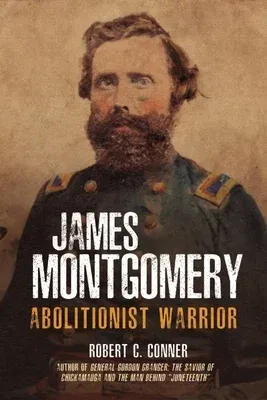The first full biography of James Montgomery, who through his actions
before and during the Civil War, contributed towards the abolition of
slavery.
James Montgomery was a leader of the free-state movement in pre-Civil
War Kansas and Missouri, associated with its direct-action military
wing. He then joined the Union Army and fought through most of the
war.
A close associate and ally of other abolitionists including John Brown,
Harriet Tubman, Colonels Thomas Wentworth Higginson and Robert G. Shaw,
Montgomery led his African-American regiment along with Tubman and other
civilians in the 1863 Combahee River raid, which freed almost 800 slaves
from South Carolina plantations. He then commanded a brigade in the
siege of Fort Wagner, near Charleston.
In 1864, still in brigade command, he fought at the Battle of Olustee in
Florida, helping prevent the collapse and disintegration of Union
General Truman Seymour's army. Later that year he returned home and
played a significant role in defeating Confederate General Sterling
Price's great raid, especially at the Battle of Westport.
This is the first published biography of Montgomery, who was and remains
a controversial figure. It uncovers and deals honestly with his serious
flaws, while debunking some wilder charges, and also bringing to light
his considerable attributes and achievements. Montgomery's life, from
birth to death, is seen in the necessary perspective and clear
delineation of the complex racial, political and military history of the
Civil War era.

